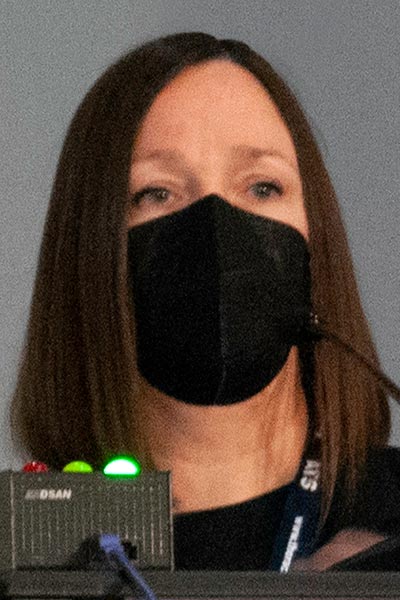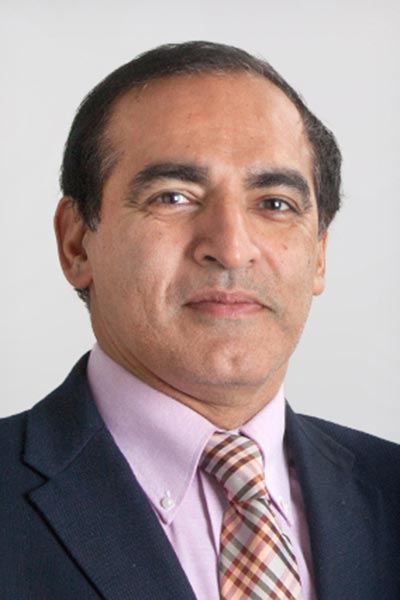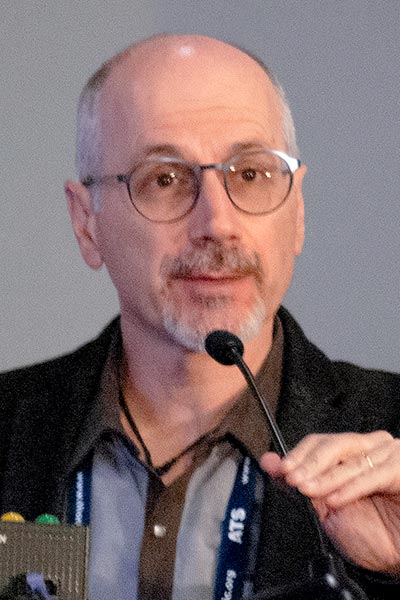A panel of experts discussed the increasing understanding of the relationship between the microbiome in the gut-lung axis and respiratory health and disease during the symposium, The Interplay Between Host Microbiome and Lung Microenvironment in the Pathogenesis of COPD and Lung Cancer, at ATS 2022 on Wednesday, May 18.

Studies have shown that exposure to smoke, pollution, allergens, and infections changes the gut microbiome and metabolomics over time, which leads to systemic inflammation that suppresses beneficial bacteria and induces disease, said Philip Hansbro, PhD, chair of inflammation, School of Life Sciences, University of Technology, Sydney, Australia.
Furthermore, he said, 50 percent of people with inflammatory bowel disease have pulmonary involvement and inflammation, and COPD patients are two to three times more likely than healthy patients to have gut disease, with increased intestinal permeability.
He also noted that, with asthma, composition of parts of the gut microbiome in early life can be a key risk factor or protector in lung cancer. Changes in microbiomes are also involved in the pathogenesis and treatment responses in COVID-19 patients who frequently have nausea and diarrhea, Dr. Hansbro said.
Newer studies are now looking at ways to treat COPD patients with low–protein, high-fiber diets to improve lung function.
“We can modify gut microbiomes and metabolites with diets and microbiome transfers in clinical trials,” Dr. Hansbro said.

Susan Lynch, PhD, director of the Benioff Center for Microbiome Medicine, University of California-San Francisco, discussed data that illustrates how airway microbiota relates to lung disease, endotypes of disease, as well as to susceptibility to exacerbation.
She talked about how the airway microbiome changes with the seasons, how it exhibits exacerbation-related dynamics that tend to favor certain organisms and allows them to stably maintain themselves over time.
“The integration of datasets really allows us to identify with greater precision subsets of patients that are at heightened risk of exacerbation and to identify those who may be protected, and to leverage that information to develop novel therapeutics to prevent these events from occurring in these patient populations,” said Dr. Lynch.
Seyed Javad Moghaddam, MD, director of the Immunology Graduate Program, University of Texas MD Anderson Cancer Center, talked about research comparing the effects of cigarette smoke to e-cigarette vapor on the host microbiome and lung immune microenvironment.


He presented findings of studies in mice showing that cigarettes promote a higher effect of induced inflammation and disease compared to e-cigarettes. Dr. Moghaddam noted that there’s a potential for regulatory T-cell production leading to the suppression of cytotoxic T-cell response. He also said there were significant changes in lung microbiome in mice subjected to the smoke and vapor.
Sanjay Sethi, MD, chief of the division of pulmonary, critical care and sleep medicine, University at Buffalo Jacobs School of Medicine and Biomedical Sciences, presented studies that show that the microbiome has more protein bacteria and appears to be associated with specific endotypes and phenotypes.
He noted that inhaled steroids are a double-edged sword, as studies have shown that they seem to alter the COPD microbiome unfavorably. Dr. Sethi also pointed out that there are limitations and caveats in interpreting the lung microbiome data.
“But we have to move forward,” he said. “We can’t stay with 50-year-old technologies. I think there’s a lot of exciting new knowledge and innovative therapeutics that could come from this work.”
Extend Your Learning Beyond San Francisco with ATS 2025 Conference Highlights

With so many valuable educational opportunities offered during the ATS 2025 International Conference, attendees are often forced to decide which sessions to prioritize. That’s why the Society is offering three ATS 2025 Conference Highlights packages for those unable to attend ATS 2025 San Francisco or attendees interested in continuing their education after the conference. Check out the packages and pick the one that’s right for you. Learn at your own pace, whenever and wherever you are!

